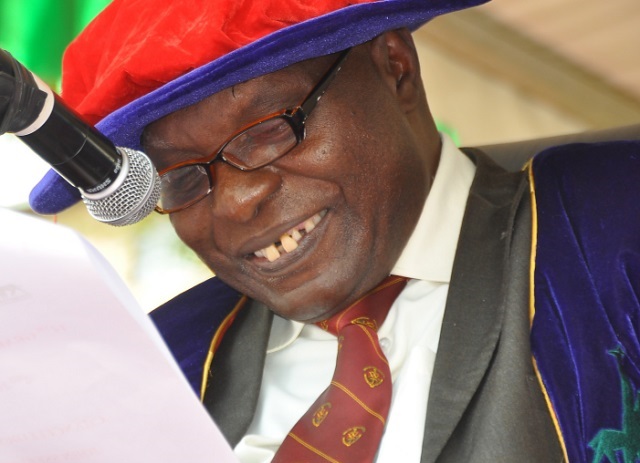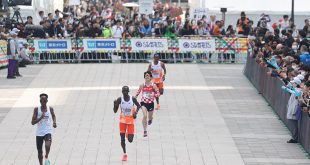
A true story by Prof. John Sebuwufu; former vice chancellor of Makerere University Kampala, about student strikes.
In spite of occasional skirmishes, some order had returned to students’ politics, until February 2001 when the calm was rudely interrupted by the murder of a first-year student and a resident of Lumumba Hall.
On Friday, February 02, 2001, Alex Remo Adega, a first-year BA Education student who hailed from Arua District, was shot dead by a gunman in front of Mary Stuart Hall as he returned from a night out in town. The shooting took place a few minutes to six o’clock in the morning. When the news of his death broke out, all hell broke loose.
Asuman Basalirwa, a Law student was then the Guild President. Curiously, Alex Adega was shot dead a day after one of the national presidential candidates who was opposing President Museveni in the 2001 general elections had addressed a campaign rally at the university’s Freedom Square. The rally had attracted several people from town. After the rally, the Square had been left in a mess with litter everywhere. We strongly suspected that the murderers took advantage of the rally to sneak into the university campus to commit the grisly act.
I heard the shots from the window of my residence; it seemed to have come from within the university campus, about which I was obviously concerned. However, on second thoughts, I felt it was the Police chasing some criminals. The possibility of a student being shot dead within the confines of the university premises did not cross my mind at that time.
Whenever there was commotion at odd hours in any hall, particularly Mary Stuart and Lumumba which were close to the Vice Chancellor’s Lodge, I would immediately contact the Dean of Students, Mr John Ekudu. The purpose was to fill me in if he already knew what was going on or to alert him if he did not know what was going on. After the gun shots, Lumumba and Mary Stuart residents started shouting, but the shooting subsided as soon as it had begun. It subsided because the students were already on the march to mobilise other students to join them in a demonstration. I sensed that something had gone terribly wrong.
Whatever it was, we had to be prepared for the worst. I rang John Ekudu, who had not received news about the commotion, but had started hearing students shouting from a distance. He promised to get in touch with the Warden of Mary Stuart Hall. I also tried to contact her, but her line was busy every time I called. A few moments later, Ekudu called me back. It was the news I was least prepared for.
A student had been shot dead and the gunmen had taken a few female students with them, possibly to rape and murder them too. John Ekudu assured me, as he always did, that he was handling the situation as best as he could and that he would let me know when it was appropriate for me to visit the scene of crime.
That was the beginning of our mayhem that day. I immediately contacted the Deputy Vice Chancellor, Professor Epelu Opio, who was in charge of security, as well as the other members of the management team. We started working on some contingency plans to contain the situation as best as we could, while the Police investigated the circumstances under which the student was shot. This was the time I really appreciated the importance of the cellular phones, which enabled us to keep in touch constantly and to update one another on what was happening.
What made this unfortunate incident worse was the fact that the country was in the midst of the presidential campaigns and everyone, including the students were politically charged. Most students at the university were opposition supporters.
Politicisation of incident
My big concern was the politicisation of this unfortunate incident. Before long, the students were at the Deputy Vice Chancellor’s residence, demanding some explanation as to why the university had failed to protect their fallen comrade; why the university was so lax about security, and why the university had kept old and inept security guards whose only weapons were bows and arrows and batons?
Fortunately, by the time the chanting students arrived at his residence, Professor Opio had left for the office. Nevertheless, they forced their way into his residence and started ransacking it. They assaulted his housekeeper, who later fled for his dear life. They also took away a bicycle, among other things. According to the eyewitness account we later received, the Guild President was leading his fellow students, which was quite understandable. As a leader, the students expected him to be with them at such a moment of bereavement. In all probability, if Professor Epelu Opio had been at home, the emotionally charged students would have killed him or inflicted serious injuries on him. He had to hide for some time until he was able to smuggle himself out of the university campus incognito. He had to stay away from the university campus for some time until the situation cooled down. The only communication link we had with him was by telephone.
From the Deputy Vice Chancellor’s residence, students moved to all corners of the campus. A group of them proceeded to a place called Mailo Two on Bombo Road and grabbed an empty coffin. Then they marched with it all the way to the city centre, carrying what they called Alex Adega’s body and damaging public property in their wake. Shops in Wandegeya found open fell victim to the looting of the students. They beat up some medical students they found attending lectures at Mulago, as well as students found reading in the Main Library. They injured some of them and forced them to join in the mourning demonstrations. By mid-morning, we had witnessed pandemonium on an unprecedented scale. The rowdy students smashed windows and doors in the Main Library and other buildings on the university campus. They damaged university and staff vehicles and disrupted all lectures. The Guild President seemed to have lost control of the situation, making it easy for the more radical students to take over.
The demonstration spread all over the campus and the neighbourhood. At Kasubi Trading Centre, traders quickly left their merchandise on the stands and ran for cover as the unruly mobs approached. The students ate all there was to eat and set the traders’ stands ablaze. It was a sad day, not only for the university, but also for the poor people in the neighbourhood who were trying to eke a living out of their petty trade. They lost everything. For a long time, we had been warning successive generations of student leaders about the possibility of ill-intentioned impostors infiltrating through their ranks during demonstrations, and the danger such infiltrations posed, but many of them ignored our warning. This time around, the consequence fell on us. I believe that as most students began to demonstrate, which was perfectly understandable, they did not realise the extent to which their otherwise innocent demonstrations would be infiltrated by criminals and Kampala’s vagabonds. The information that reached us in the aftermath of the demonstration indicated that most of the excesses committed during the demonstrations, like looting, were attributed to people outside the university campus who had posed as students. This is not to say that all the students were innocent of some of these unforgiveable criminal acts. Some students had behaved worse than the bayaye. So, the involvement of vagabonds and criminals in their demonstration did not absolve them from the guilt of crimes committed against the public that had nothing to do with what had happened at the university.
When the situation seemed to be slipping out of control, the Police were forced to intervene. The Military Police joined them later. Makerere students feared the Military Police, the so-called “Valentine Boys”, the most. The Police rounded up a few students for breach of public peace and for causing malicious damage to public property, but later released them.
Although the stampede was a one-day affair, it was a trying time for the university community and for me personally. I had intended to visit the scene of crime early in the day, but the Police advised me not to venture outside my residence until the situation had been brought under control. I kept monitoring whatever was going on outside on phone. Throughout the day, no student had attempted to enter my residence.
 The Independent Uganda: You get the Truth we Pay the Price
The Independent Uganda: You get the Truth we Pay the Price


